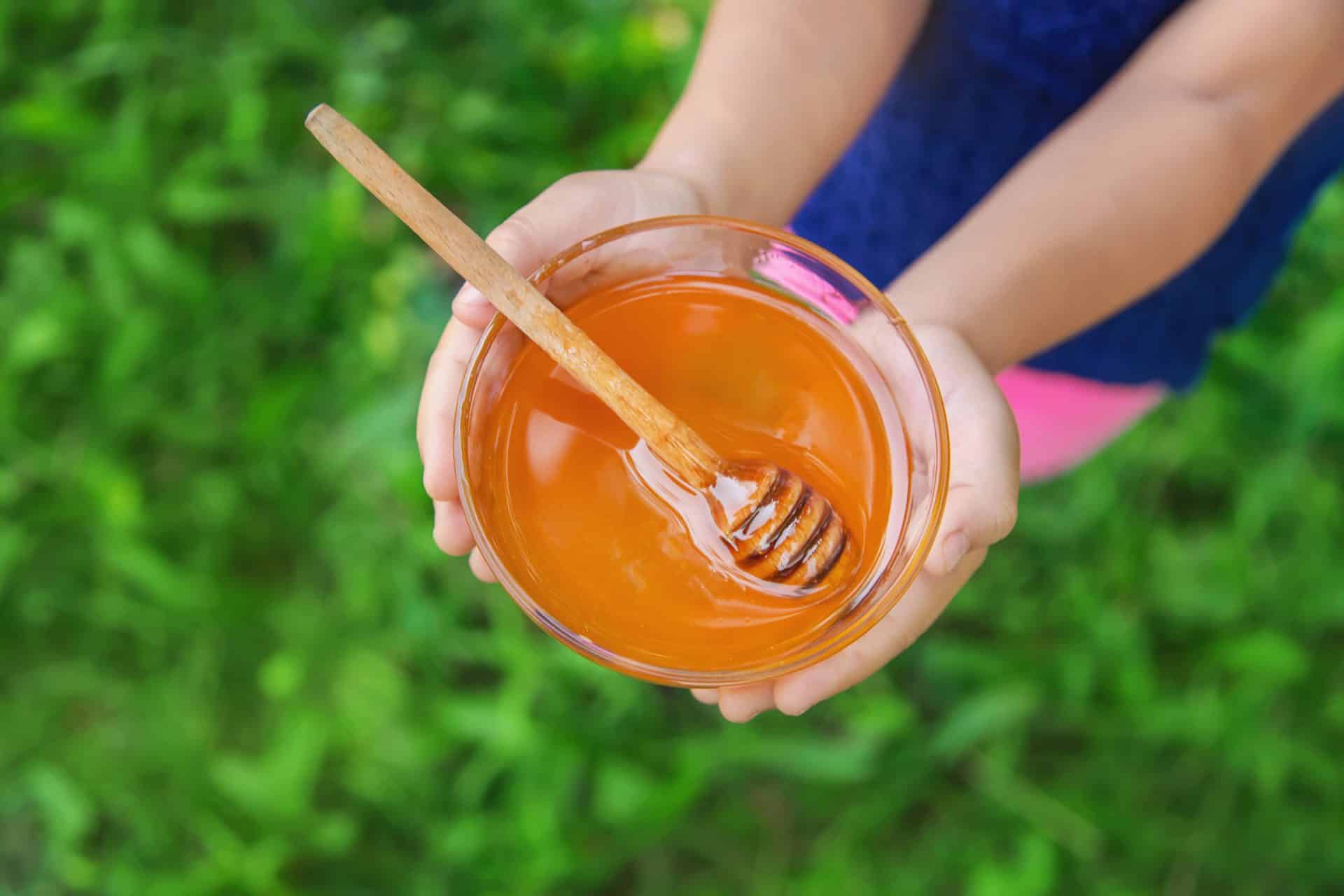We are proud to say that these posts are not sponsored. Our editorial team of Bobbie moms and writers personally select each featured product. If you buy something through our links, we may earn an affiliate commission, at no cost to you.
Before you become a parent, no one tells you how scary — even treacherous — it can feel to introduce new foods to your baby. It might sound like a fun and simple endeavor, but most new moms, dads and caregivers alike learn rather quickly that it’s like walking a tightrope. Not only do you have to prepare the foods in the proper fashion for your baby depending on their age, but you have to be extra mindful of choking hazards, as well as the certain baby foods that are off-limits for infants.
One of the top foods that you shouldn’t feed to your baby, which often comes as a surprise to most new parents, is honey. After all, it’s sweet, natural, in liquid form and something you think your baby would go crazy for — what’s not to love? As it turns out, honey is straight-up dangerous for babies under 12 months of age due to the risk of a disease called infant botulism.
Why Babies Can’t Have Honey
Honey seems harmless — and almost an ideal sweet treat for a baby — however it’s very dangerous. Although incredibly rare — only affecting an estimated 100 babies a year in the U.S. — a serious and potentially fatal complication can result from consumption, known as infant botulism.
What Is Infant Botulism?
This neurologic disease can occur as a result of a bacteria called Clostridium botulinum, which can be found in contaminated foods such as honey. “If infants under a year of age consume honey, the spores of this bacteria grow in the intestines making a neurotoxin called botulinum toxin,” explains Lauren Crosby, MD, FAAP and Bobbie Medical Expert.
What Causes Botulism?
Although rare, certain foods like honey can contain the bacteria Clostridium botulinum, which can sometimes thrive in dust- and soil-rich environments. Should this bacteria be lurking in any honey that you might have in your pantry and that you then serve up to your baby under 12 months of age, his tiny immune system does not contain the proper fighting mechanisms to protect against this bacteria.
The good news is that, once your baby is older than a year, he is less susceptible to infant botulism. Even if he were to digest this bacteria, his immune system would likely be strong enough to digest the toxin without causing harm to his body.
Signs and Symptoms of Infant Botulism
Here are some of the most common signs and symptoms of infant botulism:
- Weakened cry
- Constipation
- Loss of facial expression
- Droopy eyelids
- Reduced gag reflex
- Slow or poor feeding
- Floppiness
- Loss of head control
- Paralysis of the arms, legs or trunk
- Respiratory difficulty and possibly respiratory arrest
Common Botulism Treatment Options
If you suspect that your infant is suffering from infant botulism, it’s important that you seek medical care immediately. Hospitalization, usually in the intensive care unit (ICU), is necessary and the child will be monitored very closely. “Treatment includes IV fluids to keep the baby hydrated, tube feeding for nutritional support, possibly breathing assistance, and an immune globulin known as BabyBIG which is an antitoxin that blocks the action of the toxin circulating in the blood,” explains Dr. Crosby.
If the toxin happens to affect the muscles that allow your baby to breathe, it’s possible that the hospital staff may place your infant on a ventilator, or breathing machine, to help your child breathe. If the muscles of the throat that allow your baby to swallow are affected, food and liquid may be administered to your child intravenously or through a tube.
In Conclusion:
It’s important to remember that this side effect is quite rare. What’s more: Once a child reaches one-year old, their intestines have matured enough to handle this bacteria, so this is no longer a risk. There are many other great first baby foods. Honey is something you can more safely look forward to sharing once your baby has passed the 12 month mark.
FAQs:
Can babies eat honey?
Babies under the age of 12 months cannot eat honey due to the rare, but present, risk of infant botulism.
When can babies have honey?
You can start feeding your baby honey once she’s turned 12 months of age. At this time, her immune system will be strong enough to properly digest the toxin should the honey you feed contain it without causing any health issues.
Why is honey bad for babies?
Honey contains vitamins, minerals and amino acids, however, it is potentially dangerous for babies under the age of 12 months, as it poses the risk of infant botulism.
Can babies have honey nut cheerios?
No, they should not. “No sources of honey should be given to babies under a year of age—including Honey Nut Cheerios,” says Dr. Crosby. “Plus, this is a sweetened cereal which is not necessary for babies—the less sugar the better.”
Can I give my 10 month old honey graham crackers?
No, because this is still a source of honey. No honey should be given to infants under a year of age.

